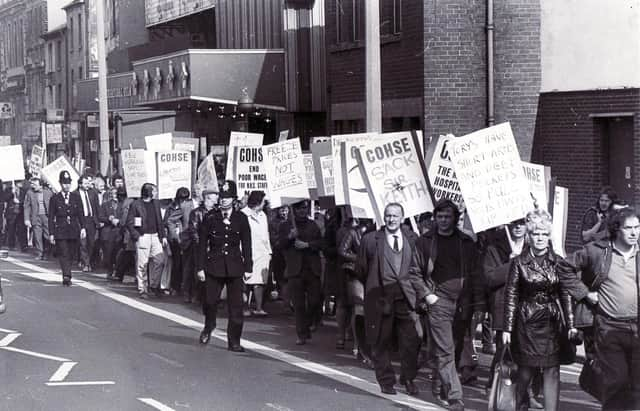Esmond Birnie: With strikes, inflation and a fuel crisis the UK in 2023 is looking like it did economically in 1973


This is partly because mistakes were made which contributed to the recession we now face in 2023.
In 1973 in the UK there was the beginning to a long recession, amidst strikes and an oil crisis which contributed to high inflation – coming a year after the failure of a tax cutting budget aimed at stimulating the economy.
Advertisement
Hide AdAdvertisement
Hide AdThe ‘great moderation’ of fairly stable prices during the 1990s and 2000s persuaded many that inflation as a problem had gone forever.
Moreover, we are now several generations on from the wage-price spirals of the 1970s.
So, things were allowed to get out of control and interest rates were only raised when it was too late. But, in January 2023 we are where we are.
All predictions are massively influenced by geopolitics: notably what happens in the War in the Ukraine but there are various other wildcards in 2023 including what China does about Taiwan and the actions of Iran.
Advertisement
Hide AdAdvertisement
Hide AdIf, say, there is an internal coup in Moscow the world energy market could stabilise and the global economy begin to recover.
However, it is just as likely that Putin will escalate his war and therefore impose even more economic damage.
A sort of middle of the road guess is that in 2023 the United Kingdom and Northern Ireland (NI) economies are likely to contract by 1-2%.
House prices will probably drop although not to the scale of the crash of 2007.
Advertisement
Hide AdAdvertisement
Hide AdThe Northern Ireland public sector faces the particular challenge of real term cuts which probably exceed those of the 2010s ‘austerity’.
Fundamental reform is needed but past experience from 1999-2022 suggests that is unlikely, even if a Stormont Executive is in place.
At the moment we may have a sort of pass the parcel game between the Secretary of State for Northern Ireland, the local political parties and the senior civil servants as regards who, if anyone, will take the hard decisions.
In fact, in this world of tight budgets public sector pay disputes will be especially bitter.
Advertisement
Hide AdAdvertisement
Hide AdThe former Prime Minister Johnson notwithstanding, we cannot have our cake and eat it.
Since extra funding form Westminster is now very unlikely high pay increases for the public sector are likely to imply service or job reductions.
As regards the Northern Ireland Protocol, the analogy of the euro currency which was introduced just over 20 years ago is instructive.
When it started it hardly made economic sense for a number of the countries which joined.
Advertisement
Hide AdAdvertisement
Hide AdOver time, however, the politics have trumped the economics as economies have been forced to converge in a number of respects.
Whether this was really advantageous is quite another question.
The United Kingdom and the European Union may reach agreement to improve some of the technical aspects of the Protocol.
I would be surprised if they resolve the issue of the supreme authority of the European Court in Northern Ireland.
Advertisement
Hide AdAdvertisement
Hide AdNorthern Ireland will become less of a regional economy highly integrated with the rest of the United Kingdom.
We will therefore increasingly experience the advantages and disadvantages of being a hybrid on the edge of both the United Kingdom and European Union.
• Dr Esmond Birnie, Senior Economist Ulster University Business School